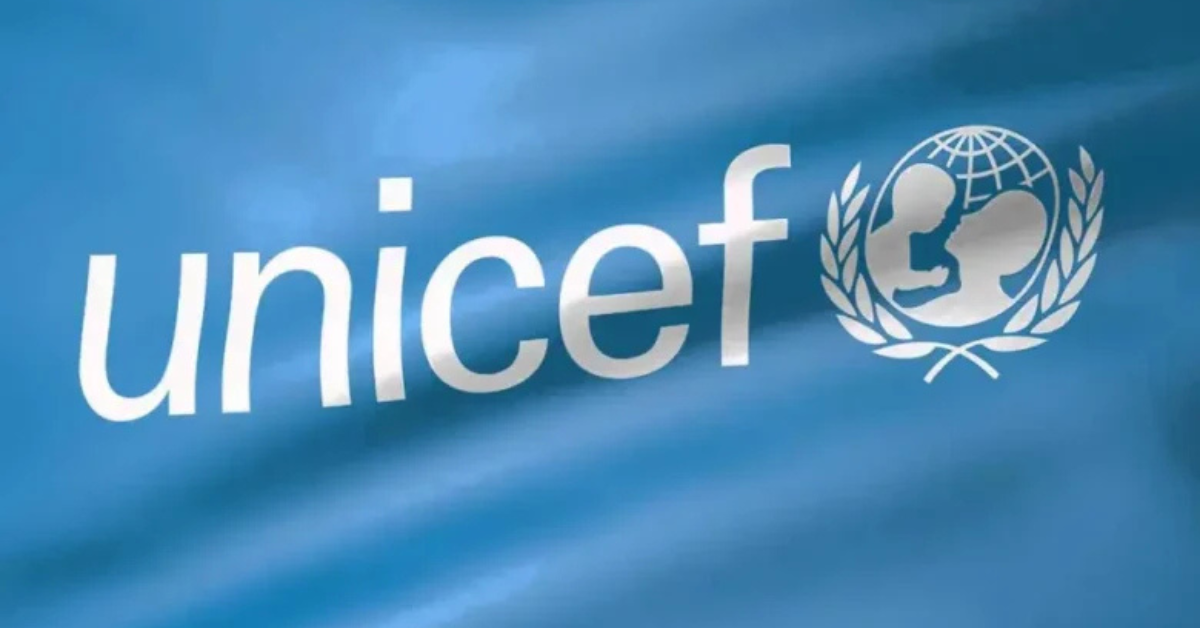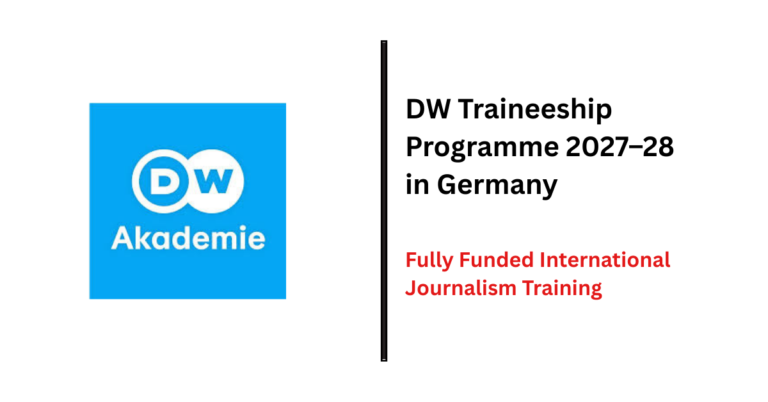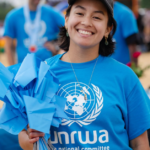Enroll in the Free UNICEF Online Courses 2026 – Education in Emergencies Global Training Programme. Learn how to deliver quality education in crisis situations, gain a UNICEF certificate, and build global humanitarian skills.
Learn How to Deliver Education in Crisis Situations with UNICEF’s Free EiE Global Course
The United Nations Children’s Fund (UNICEF) is offering the Education in Emergencies (EiE) Global Training Programme 2026, a free online course designed to strengthen the capacity of educators, humanitarian workers, and development practitioners who work to ensure access to education during crises.
This global course is open to UNICEF staff, partners, and education professionals worldwide seeking foundational skills in education in emergencies, child rights, risk-informed programming, and humanitarian response.
If you are passionate about building resilient education systems that serve children affected by conflict, disaster, displacement, or poverty, this free online UNICEF course is your gateway to becoming part of a global movement for educational resilience.
About the UNICEF Education in Emergencies Global Course
Provider: UNICEF
Format: Online (Self-paced)
Language Options: English, French, Spanish, Arabic
Duration: Approximately 12 hours (over 6 weeks)
Level: Beginner to Intermediate
Cost: Free
Certificate: Issued upon completion
The Education in Emergencies Global Course provides comprehensive training in the policies, principles, and practical tools needed to plan and deliver education services during humanitarian crises.
Developed originally by UNICEF’s Eastern and Southern Africa Regional Office (ESARO) and updated globally, the course consolidates material from leading EiE training programmes, including:
- Frontline Responders Training
- INEE Minimum Standards for Education
- Risk-Informed Programming
This ensures that learners acquire a well-rounded understanding of both operational and strategic aspects of education in emergencies.
Why Take the UNICEF Education in Emergencies Global Course?
Education plays a crucial role in humanitarian response — providing safety, structure, and hope to children living through emergencies. However, delivering education in conflict zones, refugee settings, or post-disaster areas requires specialized skills.
Through this UNICEF course, participants gain:
- Technical expertise in managing education during crises.
- Knowledge of humanitarian frameworks, including UNICEF’s Core Commitments for Children.
- Practical tools for planning, coordination, and delivery of education in emergency settings.
- Cross-sectoral understanding linking education with child protection, gender, environment, and health.
By the end of the course, learners are equipped to design, implement, and evaluate EiE interventions that ensure no child is left behind — even in the most challenging environments.
Learning Objectives
By completing the UNICEF EiE Global Course, participants will be able to:
- Understand Humanitarian Architecture:
Gain knowledge of international coordination systems, humanitarian response frameworks, and UNICEF’s Core Commitments for Children in Humanitarian Action. - Plan and Implement EiE Responses:
Build skills in strategic planning, sector coordination, assessments, and logistics to manage education responses during emergencies. - Promote Resilient Education Systems:
Learn how to integrate resilience, gender equality, and risk reduction into education programming to strengthen systems before, during, and after crises. - Apply Cross-Sectoral Approaches:
Incorporate considerations such as child protection, climate resilience, inclusive education, and psychosocial support into EiE interventions.
Who Can Take This Course?
This training is open to a global audience of professionals involved in education, humanitarian aid, and child-focused programming.
Target Participants Include:
- UNICEF Education Staff (country, regional, and HQ levels)
- Implementing partners and NGOs
- Government representatives working in education or disaster management
- UN agency personnel and standby partners
- Educators, researchers, and development practitioners seeking EiE knowledge
No prior experience in humanitarian contexts is required — making this an ideal entry-level course for anyone interested in education and emergency response.
Course Format and Duration
The UNICEF Education in Emergencies Global Course is self-paced and can be completed in about 12 hours over 6 weeks.
It includes:
- Four structured modules
- Video lessons from key UNICEF and EiE experts
- Interactive content and quizzes
- Case studies and reading materials
- Forum discussions moderated by facilitators
Participants can complete the course through the UNICEF Agora platform, which is compatible with mobile devices, tablets, and offline access.
Course Modules Overview
Module 1: Fundamental Concepts in Education in Emergencies
An introduction to the global humanitarian architecture, UNICEF’s Core Commitments for Children, and key EiE principles.
Module 2: Technical Areas for Frontline Responders
Focuses on emergency assessments, information management, coordination mechanisms, and logistics for education delivery.
Module 3: Rights-Based Approaches to Education
Explores how to strengthen education systems using rights-based frameworks, child participation, and inclusive education practices.
Module 4: Cross-Cutting Issues
Covers gender equality, child safeguarding, disability inclusion, climate resilience, and risk-informed education programming.
Languages Available for UNICEF Online Courses
To make the course accessible globally, UNICEF offers the Education in Emergencies Global Course in four languages and two formats:
Full Course:
- English
- Arabic
- French
- Spanish
Short (Executive Summary) Version:
- English
- Arabic
- French
- Spanish
Learners can choose between the complete training programme or the shorter summary course, depending on their time availability and professional needs.
Certification and Accreditation
Upon completing all modules and assessments, participants receive a UNICEF Certificate of Completion issued through the UNICEF Agora platform.
This certificate validates your training in Education in Emergencies, which can strengthen your professional profile for roles in:
- UN agencies
- International NGOs
- Government ministries
- Humanitarian and development organizations
Technical Information
- Platform: UNICEF Agora (supports smartphones, tablets, and offline learning)
- Estimated Time: 12 hours
- Mode: Self-paced with facilitator guidance
- Cost: Free of charge
- Support Email: eiecourseadmin@unicef.org
- Technical Assistance: Available via the UNICEF support request form
Why Enroll in 2026
In a world increasingly affected by conflict, climate change, and displacement, education remains one of the most powerful tools for recovery and hope.
By joining UNICEF’s EiE Global Course 2026, you become part of a global learning community committed to:
- Delivering education in the hardest-to-reach places
- Supporting children’s psychosocial well-being
- Building resilient education systems for future generations
This free training gives you both knowledge and credibility to contribute meaningfully to humanitarian education efforts.
How to Enroll
You can enroll for free on UNICEF’s Agora learning platform:
👉 https://agora.unicef.org
Simply create a free account, search for “Education in Emergencies Global Course”, and select your preferred version (complete or summary, in your language).
Follow Our Social Media Pages
Join Our WhatsApp Group
Join Our WhatsApp Channel
Follow Our Facebook Page
Related Posts
- UNICEF Climate Resilience Internship 2026 – Paid Global Opportunity for Graduates
- World Bank Summer Internship Program 2025 – Fully Funded
- UNDP Research Fellowship 2025 – Global Opportunities for Graduates
- Gates Foundation Internship Program 2025 – Apply for Global Roles
Meta Description
Enroll in the Free UNICEF Online Course 2026 – Education in Emergencies Global Training Programme. Learn how to deliver quality education in crisis situations, gain a UNICEF certificate, and build global humanitarian skills.
Frequently Asked Questions (FAQ)
1. Is the UNICEF Education in Emergencies course free?
Yes. The course is completely free of charge and available globally via the UNICEF Agora platform.
2. Who can enroll in the course?
Anyone interested in education, humanitarian work, or child rights — including UN staff, NGO professionals, teachers, and government representatives.
3. How long does it take to complete?
The course takes approximately 12 hours to complete over six weeks at your own pace.
4. Will I receive a certificate?
Yes. Participants who complete all modules and assessments receive a UNICEF Certificate of Completion.
5. Is it available in multiple languages?
Yes. The course is offered in English, French, Spanish, and Arabic.
6. What is the difference between the full and short versions?
The full version covers in-depth EiE content, while the short (executive summary) version provides a condensed overview for busy professionals.
7. Can I take the course on my phone or tablet?
Yes. The UNICEF Agora platform supports mobile and offline learning, making it easy to study anytime, anywhere.
Keywords
UNICEF online course 2026, Education in Emergencies course, free UNICEF training, UNICEF EiE global course, UNICEF Agora learning platform, education in crisis settings, humanitarian education training, child rights education course, UNICEF free certification 2026, online UN courses, UNICEF professional development, humanitarian action courses, gender equality and education training, UNICEF certificate courses, UNICEF education programmes, risk-informed programming, inclusive education training, UN training for education practitioners, UNICEF global learning opportunities








[…] Access here: UNICEF Agora […]